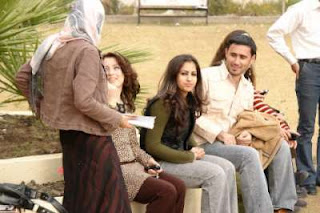There are Emotions in The Languages we Speak
In her monthly blog, Elif Shafak explained how there are emotions in the languages we speak.
Kurdish is my mother tongue. It's the language of my great-grandparents and poetry, and it represents a dream of one day returning to my roots, to a place that I once called my motherland—a land that I only remember vividly.Farsi is the language I was exposed to as a little girl due to my mother's heritage, but then I completely lost it. It slipped through my fingers because I couldn't hold on to it. I still hear it like beautiful pebbles somewhere in the distance, out of my reach.
Arabic is the language I used during my childhood years in Iraq. It shaped me into the woman I am today. It turned me into a nomadic writer who profoundly appreciates creativity in everything. It made me understand the melody, cadence, olive trees, historic alleyways, neighborhood, and bazaar with skillful goldsmiths, carpenters, artists, and religious and historical sites of Iraq and all the melancholy that comes with it.
English is my sanctuary language, where I've sought refuge after war and displacement. It is a place I call home, where I carry my ragged suitcase of loneliness, books, and nomadism—a suitcase bearing numerous scars—some visible, others not. It's where I've healed slowly. It's where I've thrown my literary voice against a wall, shattered it, and reconstructed it all over again.
You see, there is profound wisdom in being an immigrant. Our thoughts often outpace our ability to communicate them, resulting in an emotional and linguistic gap that can be challenging to bridge. This existential gap represents a profound awareness of hidden loss and a yearning that feels like a deep crack between tiles. For many of us, this crack feels very much like trauma.
.
♻️ Repost this to help others.
Follow DrHelenSairany.com/courses for more trainings.




Comments
Post a Comment